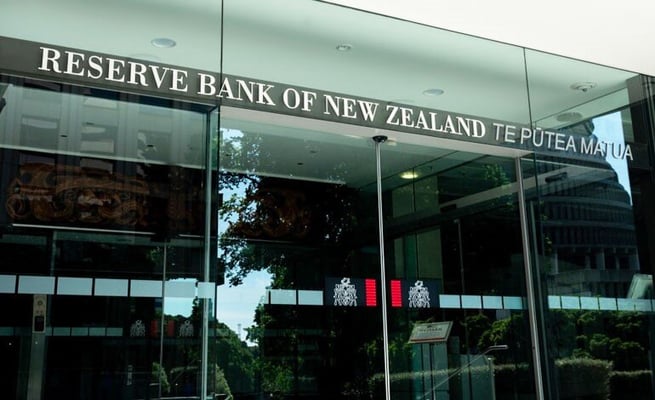Govt upbeat on riding out steep interest rate hike

The Reserve Bank’s record interest rate hike generated heated debate on Wednesday in Parliament.
To a query from National’s financial spokesperson Nicola Willis, Minister of Finance Grant Robertson conceded the interest rate hike would impact households (albeit differently and on a case-by-case basis) that would need to refix their mortgages.

That was why the government was targeting low and middle income households, being the ones who feel the cost of living pressures more than others, the minister pointed out.
In customary style, the minister harked back to the global context to support his claim that NZ had one of the lowest levels of debt in the OECD, the lowest level of unemployment on record and was the 10th lowest out of 38 OECD countries in terms of the level of inflation.
But National’s Willis cited the Reserve Bank’s forecast that NZ would go into negative growth in 2023 and stay there for four quarters, which would deepen the cost of living crisis “for every single New Zealander.”
Again, Robertson returned to the global scenario and claimed: “Our starting point is better than most other countries: New Zealanders are in work while facing these issues; New Zealanders are seeing their average hourly earnings rise ahead of inflation.”
Overall, New Zealand remained resilient and strong, the minister said.
While acknowledging that inflation was higher in NZ than in recent years, he said other countries had a higher rate of inflation.
The minister said the government was on a trajectory where “our percentage of spending as a GDP will continue to go down.”
The Labour government presided over an economy marked by record low unemployment, with wages growing faster than inflation, an economy that has grown through Covid, the minister noted.
Robertson rounded off with a pledge to invest in public services and recognised the need for the government to return to “some form of fiscal consolidation.”
A day earlier, the minister had reserved his opinion on what the correct level of interest rates might be for the Reserve Bank to meet its price stability objective, but had anticipated an increase in interest rates in order to return to the 1 to 3 per cent inflation band.
The government had taken a number of actions to take the pressure off the Consumers Price Index (CPI) inflation, such as reducing fuel excise duty and road-user charge, Robertson told the House.
He justified the government’s COVID-related spending, which helped New Zealanders get through the pandemic.
The minister added the comment that National’s proposed policy of tax cuts for the wealthiest New Zealanders “will make that situation much, much worse.”

The Reserve Bank’s record interest rate hike generated heated debate on Wednesday in Parliament.
To a query from National’s financial spokesperson Nicola Willis, Minister of Finance Grant Robertson conceded the interest rate hike would impact households (albeit differently and on a case-by-case...
The Reserve Bank’s record interest rate hike generated heated debate on Wednesday in Parliament.
To a query from National’s financial spokesperson Nicola Willis, Minister of Finance Grant Robertson conceded the interest rate hike would impact households (albeit differently and on a case-by-case basis) that would need to refix their mortgages.

That was why the government was targeting low and middle income households, being the ones who feel the cost of living pressures more than others, the minister pointed out.
In customary style, the minister harked back to the global context to support his claim that NZ had one of the lowest levels of debt in the OECD, the lowest level of unemployment on record and was the 10th lowest out of 38 OECD countries in terms of the level of inflation.
But National’s Willis cited the Reserve Bank’s forecast that NZ would go into negative growth in 2023 and stay there for four quarters, which would deepen the cost of living crisis “for every single New Zealander.”
Again, Robertson returned to the global scenario and claimed: “Our starting point is better than most other countries: New Zealanders are in work while facing these issues; New Zealanders are seeing their average hourly earnings rise ahead of inflation.”
Overall, New Zealand remained resilient and strong, the minister said.
While acknowledging that inflation was higher in NZ than in recent years, he said other countries had a higher rate of inflation.
The minister said the government was on a trajectory where “our percentage of spending as a GDP will continue to go down.”
The Labour government presided over an economy marked by record low unemployment, with wages growing faster than inflation, an economy that has grown through Covid, the minister noted.
Robertson rounded off with a pledge to invest in public services and recognised the need for the government to return to “some form of fiscal consolidation.”
A day earlier, the minister had reserved his opinion on what the correct level of interest rates might be for the Reserve Bank to meet its price stability objective, but had anticipated an increase in interest rates in order to return to the 1 to 3 per cent inflation band.
The government had taken a number of actions to take the pressure off the Consumers Price Index (CPI) inflation, such as reducing fuel excise duty and road-user charge, Robertson told the House.
He justified the government’s COVID-related spending, which helped New Zealanders get through the pandemic.
The minister added the comment that National’s proposed policy of tax cuts for the wealthiest New Zealanders “will make that situation much, much worse.”










Leave a Comment